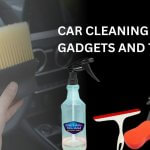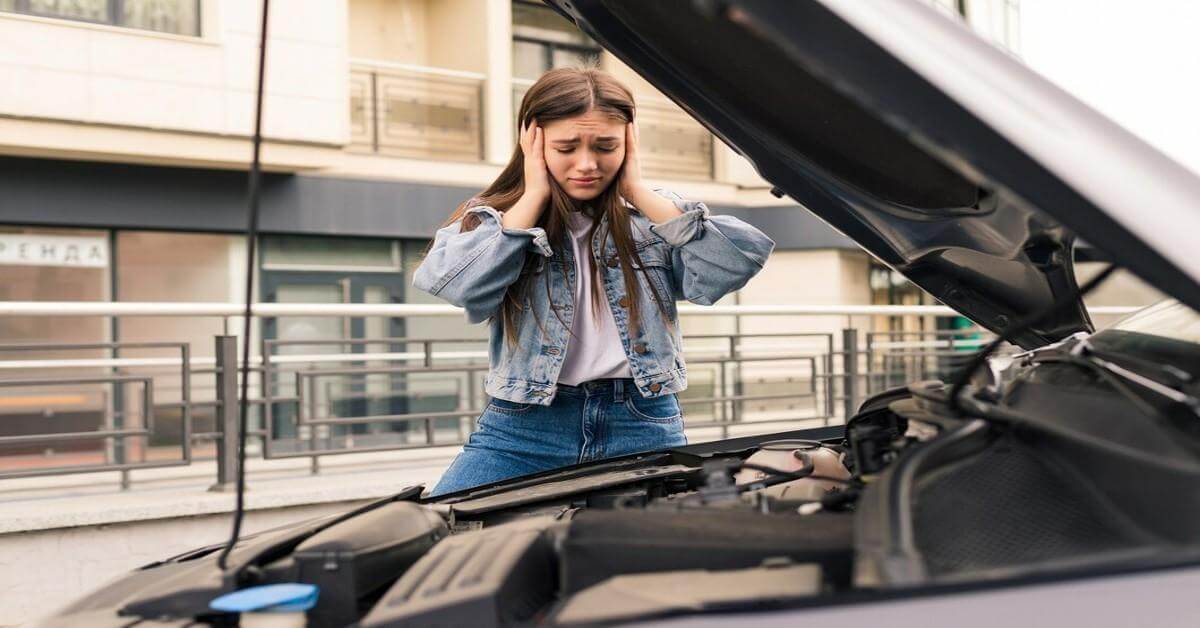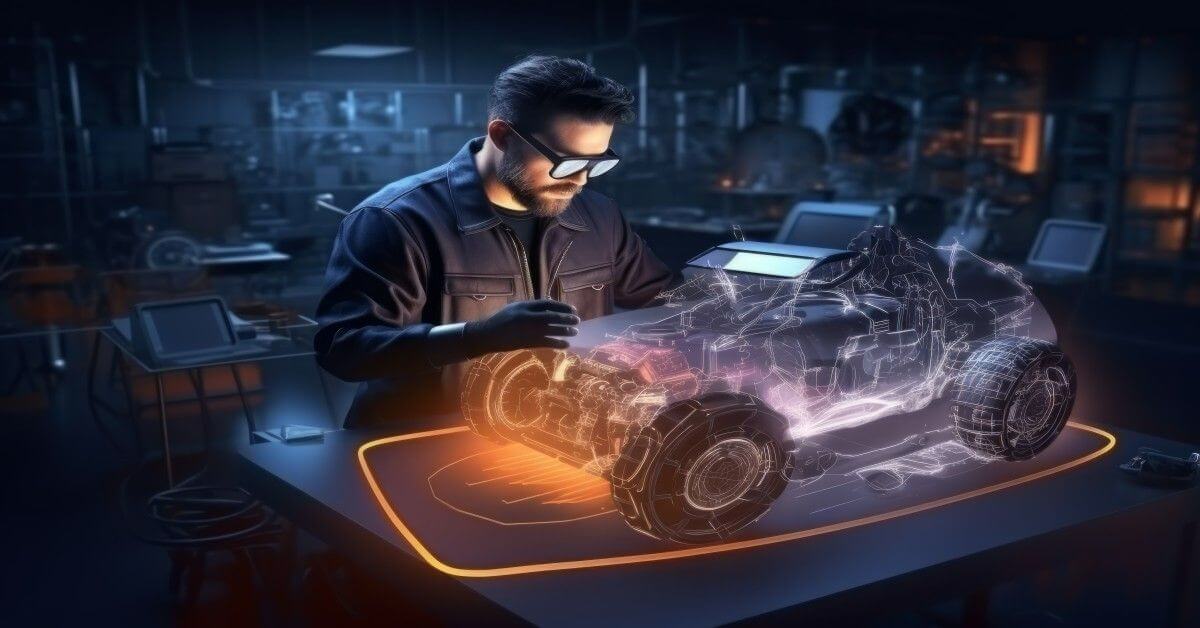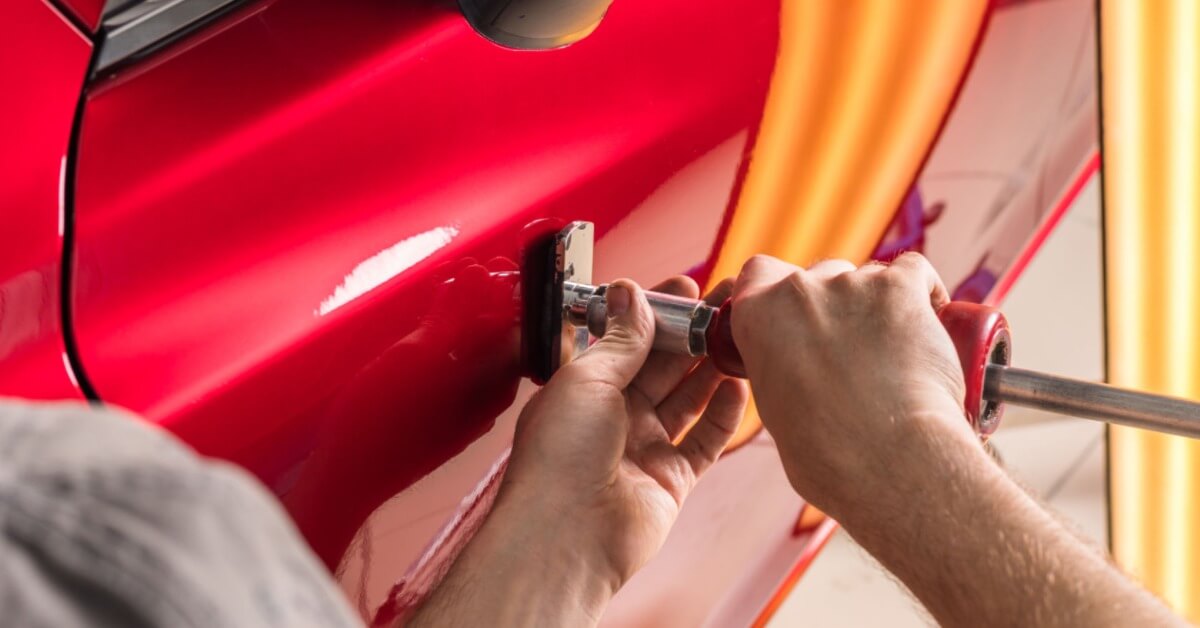Longer crank times are a common occurrence for cold starts, old engines, and badly maintained vehicles. But if your car suddenly takes a long time to start while being relatively new, there could be something going on.
The most common reason a car cranks too long is due to poor circulation of fuel. If there isn’t enough fuel reaching over for combustion,
the engine will not be able to generate sufficient energy to turn over as normal. And that may either be a result of low fuel pressure, an obstruction in delivery, or something as simple as low fuel in the tank.
However, the delivery of fuel or the combustion of such depends on a number of other factors as well. The ECU uses various sensors and parameters to determine the fuel mixtures that work best under different circumstances.
Essential components like TP, MAF, ECT sensors, spark plugs, and ignition coil can all create a condition of extended cranking in which a car may either be forced to start with reduced power or the combustion of the same may not be able to take place in proper order.
As there are so many factors that place their influence on proper combustion it is important to look at each of them separately. Here are the things that may create a longer crank time for your car.
Table of Contents
Fuel Delivery Problems
One of the main things that a car needs to run is fuel. The fuel pressure maintained in a car should be around 40 PSI, though the exact pressure is pre-defined and varies from manufacturer to model.
If the PSI is below 30 or above 60 it could create problems for the engine and may even cause it to not start. Generally, a low fuel pressure that is slightly around 30 but not quite too low is what causes extended cranking of the vehicle.
If the amount of fuel being sent is lower than usual, it’s obvious the engine will struggle to turn over with the little amount, it has to work with.
The fuel pressure in a vehicle can be affected by four things namely the fuel pump, fuel filter, fuel injectors, and the fuel pressure regulator.
It is important to check the first three before moving to the FPR as the failure of the regulator diaphragm is rare. However you could still look for a leak or chapped hose which usually creates a surge in fuel pressure.
But before you go on to check any of the components in the fuel system, one simple way you can determine that fuel is not reaching the cylinders is by using starting fluid.
You can buy some starting fluid and spray some of it in the air intake of the system. And if the vehicle turns over for a few seconds, you can confirm something is impending in the fuel flow.
Fuel Pump
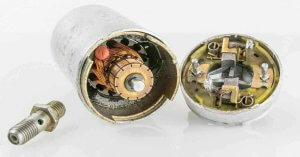
In order for the fuel to travel from the gas tank to the fuel rail, it needs to be pumped through a motor. The fuel pump is what creates sufficient fuel pressure in the system so that fuel can pass the various stages of fuel delivery unhindered.
But if the fuel pump isn’t able to send over fuel at good pressure, the engine might not be able to generate enough power for the engine to turn over smoothly.
The draws fuel directly from the gas tank when the key is turned in the on position. Sometimes cycling the key in on position multiple times can also activate a good fuel pressure in the system and start the vehicle.
Fuel Filter
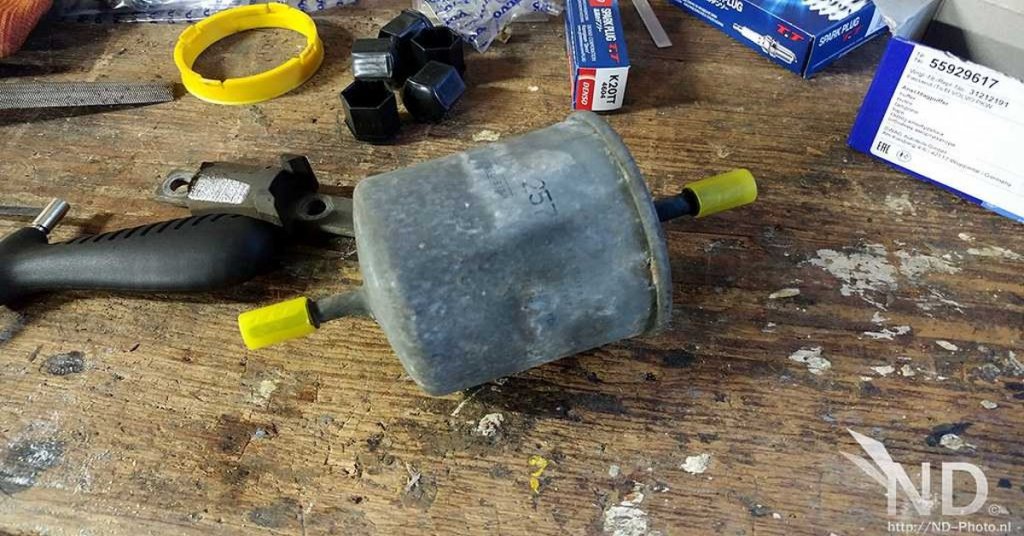
Fuel sent over through the pump usually contains tiny particulates and sediments. Such impurities might be invisible to the naked eye but are not suitable for efficient combustion and may even cause accelerated wear on the internal components.
To screen out these particulates the fuel passes through the fuel filter before actually making it to the injectors, generally without affecting the fuel pressure. However, if the fuel filter gets clogged, it may make the filtration process longer and reduce the fuel pressure. In some cases where the fuel filter is plugged with larger debris, it may even restrict the flow of fuel entirely and cause improper combustion.
Dirty Fuel Injectors
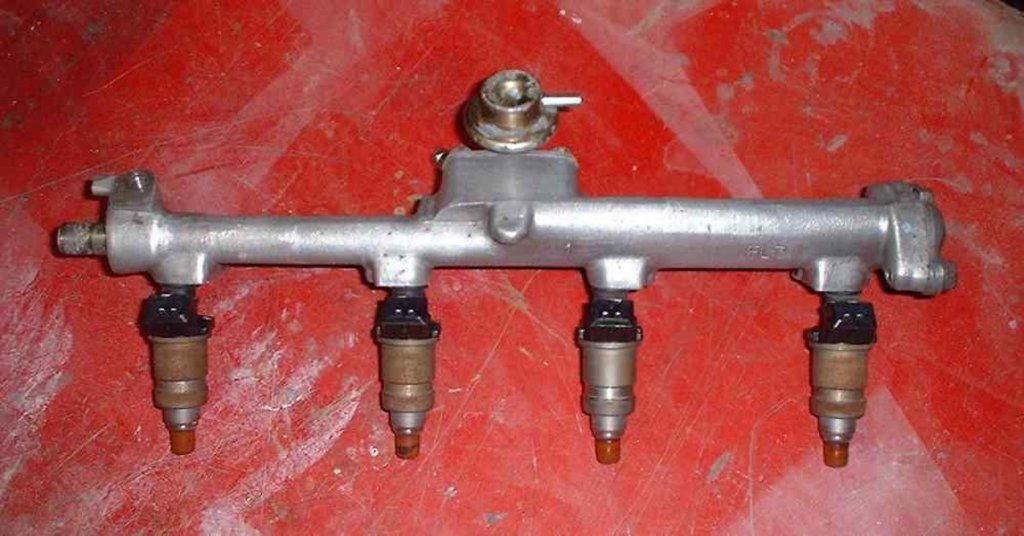
Fuel injectors are what eventually make the fuel travel into the cylinders. They use the right amount of pressure from the regulator, make proper adjustments to the angle and atomize the fuel into gaseous form for the perfect delivery.
Though their extremely tiny nozzles which spray the fuel into the cylinders are subject to dirt accumulation from the smallest of debris.
When the fuel injectors are clogged up they may not be able to fire at the right time or create an unbalanced pattern of fuel delivery. In such a case, the engine may refuse to turn over slightly but once enough fuel is poured in it may start right up.
You can easily check for dirty fuel injectors using a screwdriver. Just place the metal end on the injector and another end near your ear and if you hear a constant rhythmic clicking,
it would mean your fuel injector is fine. Do this for all injectors and you would be able to identify the black sheep though usually, one injector does not create much problem unless it’s stuck close or open.
Fuel pressure regulator
The fuel pressure regulator ensures the correct balance of fuel into the system. It uses certain preset guidelines to maintain an optimal fuel pressure that is specific to your engine for the most efficient fuel distribution into the cylinders.
When the key is turned in ignition, the fuel pump draws and sends highly pressurized fuel to the injectors. And it is the job of the regulator to make the flow optimal so the engine can run smoothly.
The FPR is connected to the air intake manifold through a hose which helps it to use engine vacuum to regulate the fuel pressure.
But if the regulator has developed a leak or has gone bad it could create problems in the injection of fuel. The fuel injectors work at a specific pressure,
if that pressure goes up or down, the engine will not get a good spray pattern, resulting in a few different issues including cranking and starting problems.
Symptoms of Low Fuel Pressure
- Fuel Leaks
- Decrease In Power
- Black smoke coming from the exhaust
- Spark plugs appear black
- Reduced fuel mileage
- Gasoline in the vacuum hose
Old Or Fouled Spark Plugs
The most common reason for a delayed ignition response is a weak spark. Spark plugs deliver the first touch of power to ignite the combustion mixture and create an explosion for the engine to start running.
The spark is produced when the high voltage generated by the ignition coil expands between the electrodes and jumps the gap. As the electrodes in the plugs wear, the amount of voltage needed to jump the gap goes up.
This makes the operation of spark plugs highly exposed to extreme temperatures and the turning of a vehicle more and more difficult. When the spark plugs go bad the result in the ignition is reduced power.
Due to the lack of power, the spark plug cannot deliver a zap powerful enough to ignite the fuel mixture optimally.
This will cause the engine to not start or it may start after prolonged cranking. Spark plugs withstand high amounts of heat on a daily basis and though they are quite durable, replacing them at the right intervals is the best practice.
Symptoms Of Worn Spark Plugs
Usually, spark plugs do not go out altogether but a weakened capacity can quite noticeably affect your overall performance. These are a few ways you might be able to tell your spark plugs need to be replaced.
- Poor Engine Performance
- Rough Idle
- Weak Acceleration
- Noisy Exhaust Sounds
Dirty Air Filter
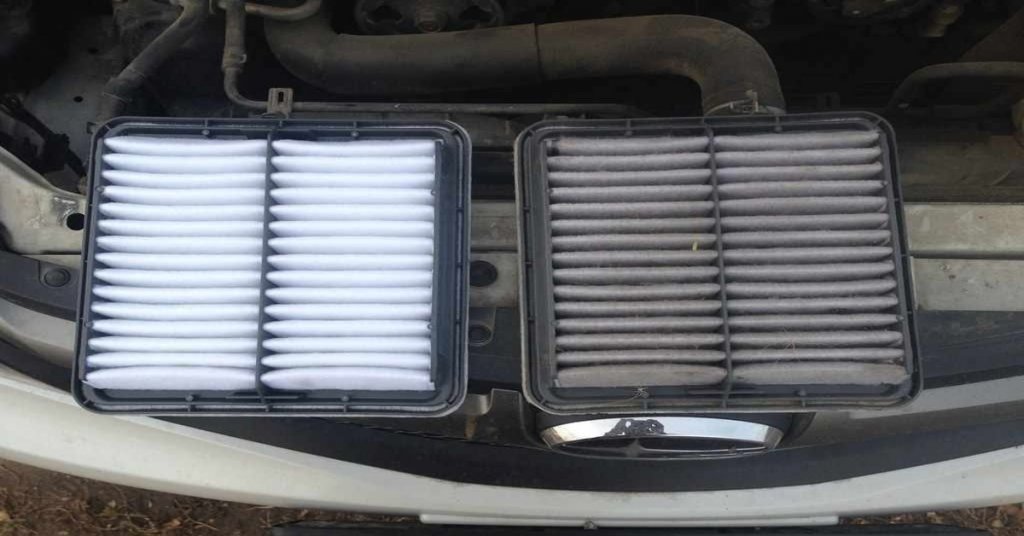
A prolonged crank can also be traced to a dirty air filter particularly one that has been visibly clogged. The role of an air filter is to ensure a clean flow of air by catching dirt and contaminants as it passes through.
However, in doing so, it normally traps anything coming its way which sometimes can create a blockage. Generally,
an air filter is good for around 12000-1500 miles but factor-like, like terrain, type of filter affect the rate at which air filters get dirty.
When the air filter is left unchecked for long or somehow rapidly accumulates dirt it could disrupt the combustion mixture by restricting the amount of air entering the system.
A clogged air filter essentially reduces the amount keeping a sufficient amount of air going into the engine also results in the reduction of spark needed for ignition.
Symptoms Of Clogged Air Filters
Air filters are located under the hood, most commonly, side of the engine compartment. You can check the filter by observing the kind of dirt and debris it has collected. Further, you might also be experiencing some of the other issues that are associated with the clogged air filters.
- Reduced Fuel Economy (on older vehicles)
- Engine Misfires
- Reduced Power
Mass Airflow Sensor
Any restriction in the flow of oxygen directly affects the amount of fuel that goes into the engine. If there is a reduction in airflow due to a blockage or miscalculations,
the ECU will lower the fuel injection to match the oxygen going into the system. This essentially results in reduced power which can cause your crank times to go up, making the vehicle take significantly longer to start up.
The mass airflow sensor is engineered to deliver the necessary airflow information to the ECU for adjusting the fuel-air ratios. So if this sensor doesn’t accurately assess the air coming in, it could send false readings causing either too much fuel to be injected or too little.
Usually, though, the way the MAF sensor may create an extended cranking condition is through a lean condition.
It may show a lowered air intake reading even with the proper flow of air. This causes the ECU to subsequently lower the amount of fuel and restrict power to the engine for ignition.
Symptoms Of Bad MAF Sensor
A little DIY cleaning can sometimes help to fix the issues created by a MAF sensor. Though if it doesn’t work for you might want to consider replacing it.
- Slow Acceleration
- Rough Idle
- Poor Fuel Economy
- Black Exhaust Smoke
- Drop Or Surge In Power
Bad Throttle Position Sensor
The air intake volumes are determined by the MAF sensor but the engine computer also needs to read the amount through the throttle position sensor.
Though the throttle position sensor usually doesn’t come into play while starting a vehicle, it can sometimes cause slow cranking of the vehicle.
It primarily monitors the position of the butterfly valve and relays appropriate signals to the engine computer for adjusting fuel ratios.
Oftentimes a throttle position sensor that’s going out can intermittently create no pulse for fuel to be injected with, in which case you find your car sometimes not staring at all or after a while when the sensor starts working.
Symptoms Of Bad Throttle Position Sensor
- Bobbing RPMs At Idle
- Uneven Acceleration
- Transmission Problems
Bad Idle Air Control valve
Any issue with an idle air control valve is generally associated with rough idles as it’s mainly considered to maintain the engine RPMs. It is regulated by the ECU to keep stable RPMs by altering the valve position as and when the airflows need to change.
Though besides idle, the IAC valve also plays an important role in starting the engine. It provides the necessary amount of air that is initially required by the engine when the throttle body is not open.
Upon cranking the engine, the air does not travel directly through the throttle body but rather from an opening in the IAC valve.
So if somehow the IAC does not respond or gets gunked up severely it will not only mess up your idle but will also impact the air intake when starting the vehicle. Hence reducing power the engine needs to turn over.
Symptoms Of Bad Idle Air Control valve
- Irregular idle
- Engine stalling
Bad Starter
Besides fuel delivery and air intake, there can be few other things that may prevent your car from starting properly. One of them can be the starter motor.
With a bad starter, mostly you would find the car to not start at all but in rare cases when the electric motor is beginning to fail, it may take a while to rotate the flywheel up to speed.
When the starter is going bad, it oftentimes either causes a delay in starting or slow cranking though you can confirm the starter for an issue if you hear a noise coming for it.
If along with slow cranking, you also hear grinding noise you could possibly have a bad starter creating those extended cranks.
Symptoms Of Bad Starter
- Clicking Sound
- Starter Works On Tapping
- Grinding Or Whining Noise From The Starter
Failing battery or Poor Connection
One of the main functions of a car battery is to provide the initial bolt of electricity to start the engine. It supplies the necessary amount of current to the starter motor and the ignition system for the trigger of the spark,
air intake, and fuel delivery at the right moment. When the battery is nearing the end of its service span, it may not be able to provide that zap with the same vigor it used to when it was new.
The power output from the worn battery may not be sufficient to start the engine but it may be able to bring the engine to a start after some persistent cranking.
Most times a long crank is interpreted as a red flag from a failing battery but it could also be caused by poor ground. In case your negative terminal is not connected properly,
it could affect the ignition with low power deliverability. Oftentimes the car may not even start but its a good place to look if you have slow cranking problems.
Symptoms Of Bad Battery And Ground
- Dim Headlights
- Clicking Sound
- Loose Or Corroded Connections
- Flickering Lights
Conclusion
Longer cranking times are common among older vehicles due to the worn-down components. But even there, you could have a better performance if you can find the culprit and replace it.
Moreover, a sudden anomaly like this is sure to trip a code so it’s best to have it diagnosed using a scanner. With a confirmed cause, it’s just a matter of replacement. And your car will be up and running like before.



